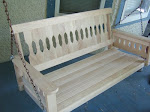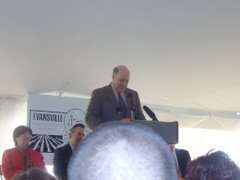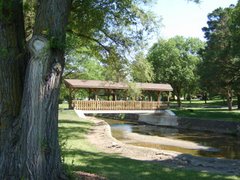In the Middle School reports for Evansville for December 2007 is the following:
"21st Century Content
J.C. McKenna Middle School has a number of projects that facilitate learning and thinking skills. During
the 06-07 school year we focused on learning strategies for students, and many of the in-service items
including teaching students to use graphic organizers to help students understand traditional curriculum
material. In addition we have an assessment PLC focusing on Authentic Assessment. This means that
students will be assessed by giving them assignments that reflect the work people do in the real world. For
example instead of memorizing dates and places in history class, students would have to write history
using primary or secondary sources and publish their work on the web. That is the task of a real historian
would perform and not just the work of student memorizing events and dates."
The objective of this learning strategy is excellent. The development of critical thinking skills is an area that the school board has identified as crucial not only for testing well on tests, but for functioning well as a citizen.
I vividly remember the very first class in an American History 101 class in college---we were reviewing the concept of "primary source." The professor handed out the "Declaration of Independence" and the "Bill of Rights". Two pretty primary documents. Then he asked the class: "When it says "All men are created equal," who was the document speaking of?"
A student quickly raised a hand: "I assume all men and women, ".
Quickly other hands went up. In 1776, one student offered, only "males" were considered "men" and women and slaves were considered "chattel" or property.
I had assumed that the first student was correct. Quickly I adjusted to the notion that every single fact had to be checked with the primary source for historical context and I could never assume again. Other secondary sources could not substitute for the primary.
Similarly, recently in Evansville, we have had incidents where video or audio of events clearly describe events that the description of which in police reports or minutes of meetings are not adequate. The audio and video is primary.
Stories that are written from secondary reports from political or appointed officials are not stories as defined by traditional standards of journalism. They might just be fiction. Primary sources are crucial for being able to write history that is worthy to be preserved.
Tuesday, December 18, 2007
Subscribe to:
Post Comments (Atom)






























No comments:
Post a Comment